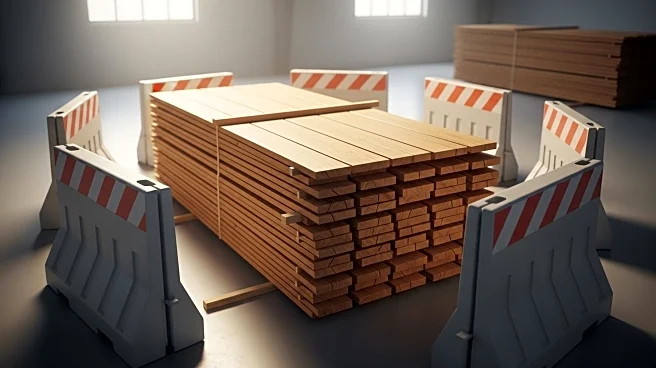What's Happening?
Nine leaders from the US hardwood and engineered wood flooring industry have formally requested President Trump to impose Section 232 tariffs on wood imports. This move is aimed at protecting domestic manufacturers from what they describe as 'dumped and subsidized' imports that currently dominate 80% of the US market. The industry leaders argue that these imports threaten over 100,000 jobs, particularly affecting rural communities. Jeremy Manthei, CEO of Manthei Wood Products, emphasized the impact on local economies, noting the decline in veneer mills from 17 to just four. Columbia Forest Products, a North Carolina-based manufacturer, highlighted previous trade cases against Chinese dumping that were undermined by production shifts to allied countries. The proposed tariffs are seen as a necessary measure to stabilize the domestic hardwood sector and preserve employment.
Why It's Important?
The petition for tariffs underscores the ongoing challenges faced by the US wood manufacturing industry in competing with international imports. If successful, the tariffs could provide a significant boost to domestic manufacturers by leveling the playing field against foreign competitors. This move is particularly crucial for small towns and rural areas where wood manufacturing is a key economic driver. The potential tariffs could safeguard jobs and support local economies that are heavily reliant on this industry. However, the imposition of tariffs could also lead to increased costs for consumers and potential trade tensions with exporting countries.
What's Next?
The decision on whether to impose the requested tariffs now rests with the administration. If approved, the tariffs could be implemented as part of broader trade policy measures. The industry will likely continue to lobby for these protections, while monitoring the administration's response. Additionally, there may be reactions from international trade partners, which could influence future trade negotiations and policies.










